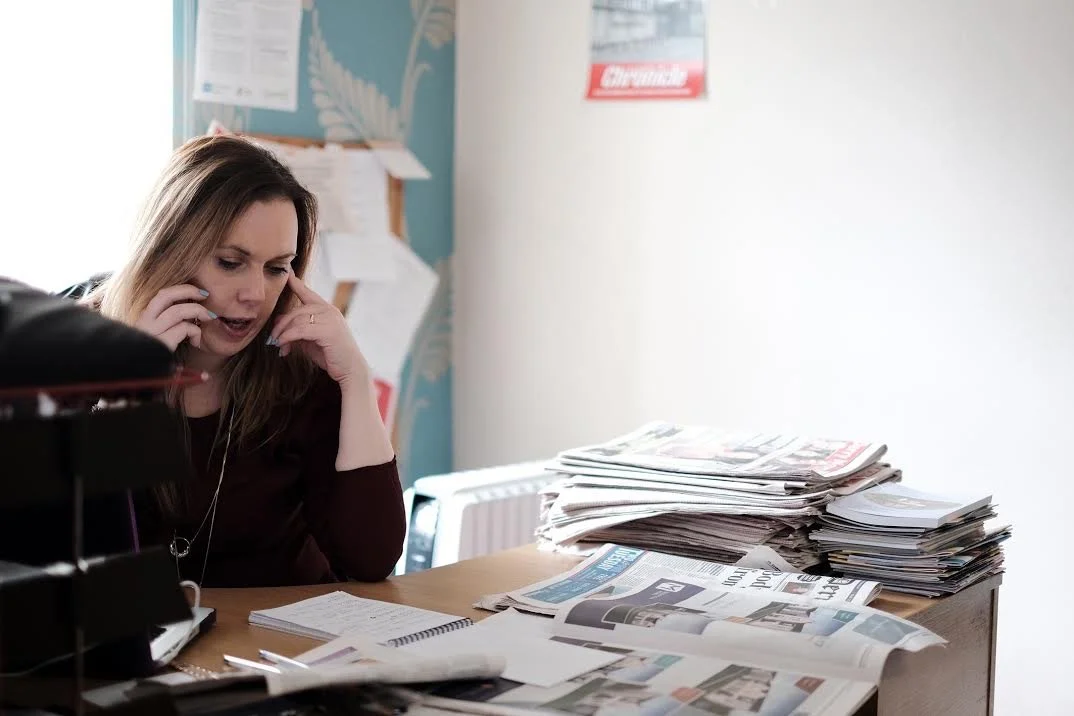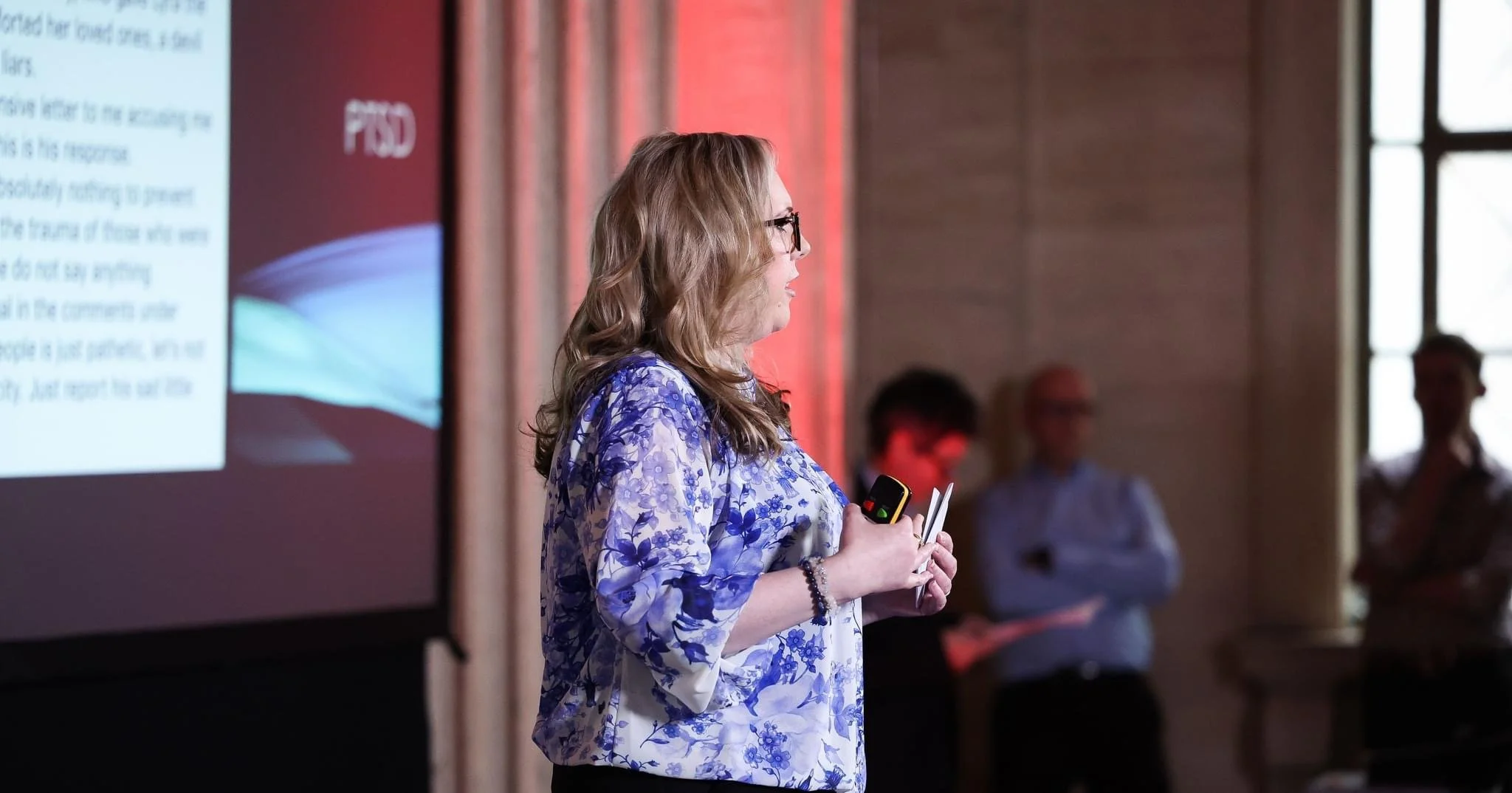specialising in newsroom wellbeing
Journalists can be exposed to high levels of stress and trauma in their working day.
However, they often report that they have little to no meaningful and accessible mechanisms in their newsrooms to counteract this or support them in dealing with issues arising from this constant exposure.
Because of the nature of the job of a journalist, they can face different forms of trauma - namely anxiety, depression, Post Traumatic Stress Disorder (PTSD), self-sabotaging behaviour as well as vicarious trauma and compassion fatigue.
Newsrooms have become quite adept at conversations around physical health, for example journalists wear safety kit when on assignment, however the emotional health of journalists who face daily exposure to traumatic stories is rarely touched upon and often avoided.
Journalists are sent into situations where awful things have happened to people, or are still happening to people, and are tasked with collating every minute graphic detail about the horror and brutality that has happened. They are encouraged to promote their stories online, where they are often met with hostility and abuse.
A constant barrage of bad news and tragedies can and does wear down the mental well-being of media workers who absorb it every day. Not just those at the coal face, but editors and managers who absorb the news in the newsroom as well as those who work in editing suites who must wade through often graphic material and make it fit for public consumption.
Due to the fast-paced nature of the work and the demand for media workers to be tough and resilient, an historically toxic culture has been cultivated which impacts on those who operate within it. That means those who encounter mental health difficulties feel they can’t speak out about it for fear of losing face and work.
This historic problem can lead to burnout, absenteeism, increased pressure on your workforce and possible litigation.
Outcomes can be improved through investigation into the current issues facing your journalists daily, tailoring bespoke mitigations unique to your organisation and providing training for both editorial staff and management to create strong pathways and communication networks to help our newsrooms thrive.
Lumenon is run by Leona O’Neill, a former journalist in Northern Ireland, current university educator and founder of #MediaStrong and TedTalker. She is currently undertaking a PhD in Journalism and Trauma at Ulster University and is a consultant in newsroom mental health across the UK and Ireland. She is one of the leading figures in the campaign for better newsroom mental health globally.
Our Services
-
newsroom consultation
Newsroom staff - from reporters, photographers, camera operatives to newsroom leaders and those in the editing suite - face stress and trauma. Decompress Training is designed for your specific newsroom and employees with a view to help mitigate harm caused by every day stressors all newsroom workers face.
-
workplace consultation
Many employees - such as court staff, the emergency services, victim support staff, religious leaders and archivists - face similar stress and trauma to journalists in their workplaces. Decompress Training is designed for your specific workplace and employees.

-
wellbeing training
Workplace well-being training is available to newsrooms and all working environments where staff are exposed to stress and trauma in the course of their working days. Training can be delivered in person, live online, or in recorded sessions that can be accessed by staff at a time that suits them.



